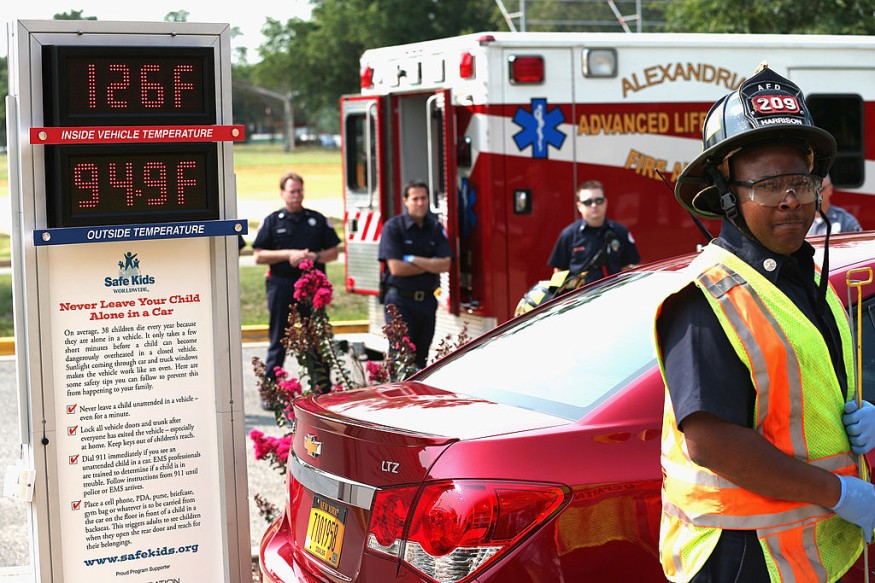
In the US, June officially marks the first days of summer. According to recent forecasts however, hot days could already start coming in as early as this week.
Contrary to popular expectations, California is not going to be the first to experience this.
High temperature days already here for some states
Temperatures within the 90 degree ranges have already been reported in states of New Jersey, Tennessee and Alabama. And in Washington, these days are expected to come even more frequently before June.
With stories like the horror of the California wildfires still fresh on people's minds, an early heat wave could be seen as a troubling sign (especially when it is happening on the opposite side of the continent).
However it is important to first understand how heat waves work and how to see them in an environmental context before jumping to conclusions. This is going to be even more important as global warming trends could mean more of these early heat waves.
Heat waves are produced as a result of high-pressure systems. Pressure is specifically from the concentrated air in a region and that air is more or less not getting carried anywhere by wind currents. This air, in turn, gets gradually heated by the sun and thus affects everything in the area.
And now, this high-pressure area is growing across the southern US and is creating record highs across all states, all across the rest of this week. On the bright side, the California wildfire incidents have taught a lot about both the complexity and importance of controlled burnings and other forest fire management practices.
Also read: Atlantic Storm Warning Could Signal Early Hurricane Season for the Seventh Time
Preparing for High Temperature Days
Aside from wildfire prevention though, it is also important to remember health-related practices that are just as important when going about in a heat wave. Don't forget the following tips.
1. Stay hydrated.
90 degree days can actually cause your body to dehydrate in as little as 30 minutes. Take no chances and always have enough water with you when you go out in the sun. If you are planning to do some workouts or even just any intense form of physical labor, then definitely double the usual amount of water you carry.
2. Get sun protection.
High heat days usually mean clear skies. And while that is a pretty sight to see, it also means you are exposed to a lot of harmful UV radiation. Make sure you wear proper sun protection as well proper sunscreen when going out.
3. Keep the air moving.
What does fanning yourself, opening a window and switching on the AC all have in common during the hot day? All of them involve circulating air to keep cool. Try not to spend too much time inside hot rooms and avoid leaving pets as well as small children inside vehicles.
On a final note, make sure to also catch up on what some states are already doing to boost fire prevention (and what you can do to play your part).
Also read: Greenhouse Gases are Shrinking the Stratosphere - New Study
© 2025 NatureWorldNews.com All rights reserved. Do not reproduce without permission.





